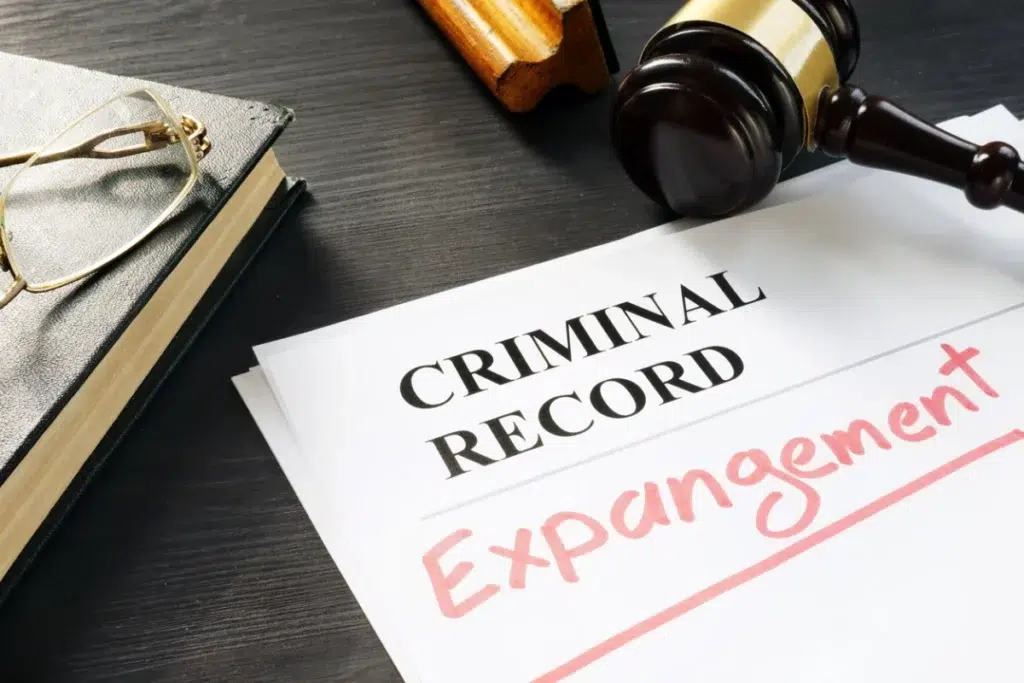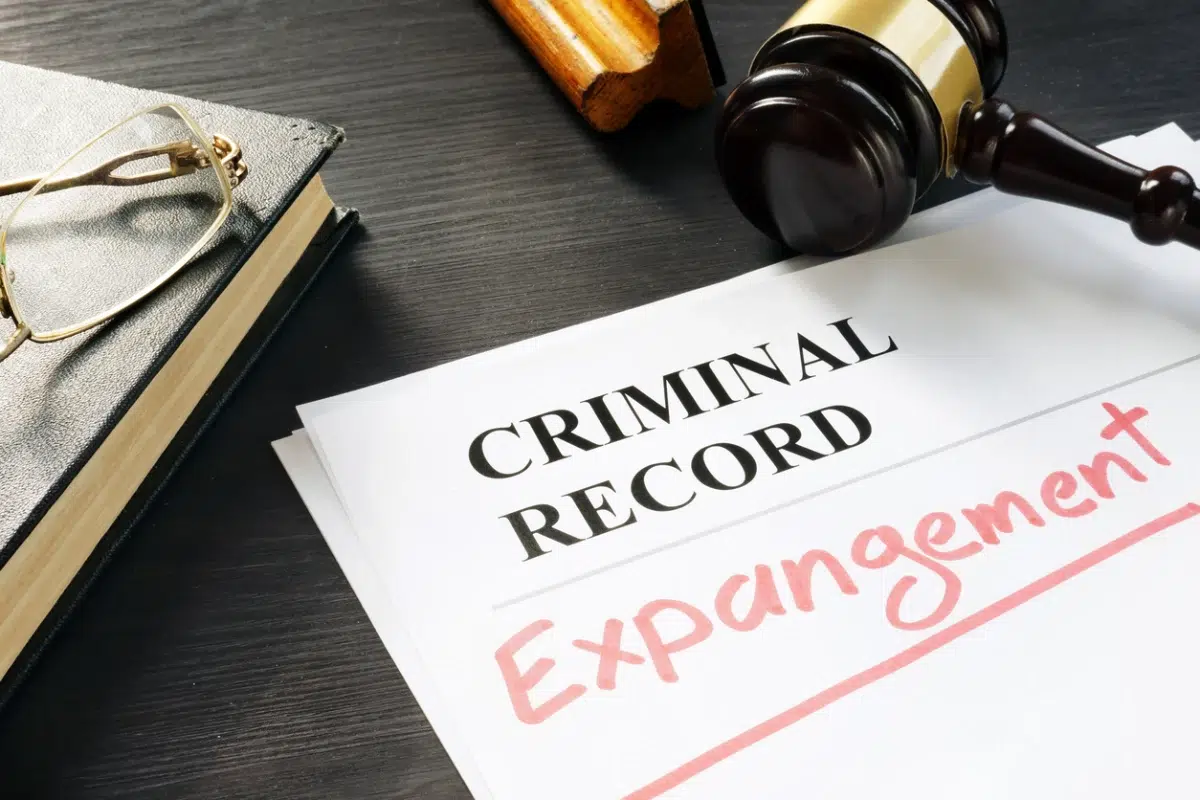
A criminal record can present a significant obstacle in your post-release life. Potential employers, professional licensing boards, landlords, and educational institutions will often conduct background checks. If you have a criminal history, you may be denied employment, educational opportunities, and professional licensing. You may also lose your right to own or possess a gun.
Under the Indiana expungement law, you and your criminal defense attorney can petition to clear your criminal record and restore your civil rights. Importantly, the grounds for an expungement petition can be met by many convicted offenders, putting an expungement within their reach.
Step-by-Step Overview of the Timeline for Expungement in Indianapolis
Expungements can clean up your criminal record, allowing you to escape many of the collateral consequences of an arrest or conviction. The following steps determine how long expungement takes in Indianapolis:
- Preparing and filing the expungement petition and paying court costs
- Serving the petition on the prosecuting attorney in cases involving conviction records
- Receiving any objections from prosecutors
- Receiving an optional victim statement if the petition includes serious felony conviction records
- Attending a court hearing
- Receiving the court’s decision
Indiana law prescribes two time periods in this process. First, the prosecuting attorney’s office has 30 days to file objections. Second, the court must set any hearing at least 60 days after you serve the petition on prosecutors.
Thus, a typical timeline for a process involving convictions starts after you and your expungement attorney prepare your petition. Your lawyer will usually serve prosecutors immediately after filing.
You should receive a copy of the prosecuting lawyer’s objections, if any, within 30 days after your filing date. The court cannot set the hearing any sooner than 60 days after the filing date. Alternatively, in cases where the prosecution objects, the hearing can be no sooner than 30 days after the prosecuting lawyer’s deadline.
The law does not set a deadline for the victim’s statement in serious felony cases. However, a court will likely consider any statement received at or before the hearing.
The court hearing allows the judge to review the petition and objections. The judge will also ask the parties to answer questions to clarify any unclear issues. Specifically, the court will likely review your eligibility under the Indiana expungement law and discuss any objections raised by the state.
How long does expungement take for arrest records? Interestingly, the time is the same even though prosecutors cannot object and victims cannot submit statements.
Categories of Criminal Record Expungement
Indiana’s expungement law has five sections. The outcome of a successful expungement is the same regardless of the criminal case for which you are seeking expungement. However, different sections have unique eligibility criteria and distinct Indiana expungement wait times based on the level of the criminal case.
These sections determine how to apply for record sealing in Indiana and include the following:
- Section 1 for arrests that did not result in a conviction
- Section 2 for misdemeanor convictions, including Class D felony or Level 6 felony charges reduced to misdemeanors
- Section 3 for Class D felony or Level 6 felony convictions not reduced to misdemeanors
- Section 4 for felony convictions other than major felonies listed in Section 5
- Section 5 for major felonies
Some criminal cases do not fall into any category. Anyone required to register as a sex or violent offender is ineligible for the Indiana expungement process. Additionally, a person convicted of the following offenses cannot file an expungement request:
- Official misconduct while in public office
- Murder
- Child sex trafficking
- A sex crime, even if they are not required to register as a sex offender
- Two or more separate felony offenses that involved the use of a deadly weapon
It might seem redundant to bar registered sex offenders and any person convicted of a sex crime. However, this approach blocks anyone convicted of a sex offense from clearing their criminal history, even after they complete their time on the registry.
By contrast, a violent offender can seek expungement after completing their time on the violent offender registry as long as they were not convicted of murder or two or more felonies involving the use of a deadly weapon.
Notably, the juvenile expungement process in Indiana follows the same procedures as adult expungements. Thus, a juvenile adjudication that would have qualified as a felony in adult court will be expunged using the adult felony expungement process.
Eligibility to Expunge Your Criminal History & Reasons for Denial
The grounds for denying an expungement petition often fall into a few categories. First and foremost, the court can deny a petition if you were convicted of an ineligible offense. Similarly, a judge can deny petitions that do not meet the eligibility requirements for expungement in IN, including paying any fees and completing any waiting period.
The eligibility criteria depend on the classification of the criminal charges, as follows:
Section 1
Section 1 is available for any person’s arrest that did not result in criminal charges. Likewise, this section applies to any arrest that resulted in a case dismissed by the state or vacated on appeal.
The petitioner must wait one year after the date of the arrest, dismissal, or appeal decision. They must file an expungement petition with the court that has jurisdiction over the original case. For example, if you were arrested in the Indianapolis area, you would file your petition in Marion County. If you were arrested north of the city, you might file in Hamilton County.
The costs for filing an expungement in Indiana under this section are significantly less than in other sections because you are not required to pay a filing fee for a Section 1 petition. If you meet the eligibility criteria and have no criminal charges pending, the judge must grant your petition to expunge your arrest records.
Section 2
Section 2 covers adult misdemeanor expungement in Indiana, including low-level felonies that were reduced to misdemeanors. To be eligible for this expungement, you must not have been convicted of two or more felonies involving the use of a deadly weapon, even if you have misdemeanor convictions that are otherwise eligible.
You must wait five years after your conviction date to file your petition. You must have paid all fines, fees, and court costs associated with your original conviction. The judge must grant your petition upon determining that you are eligible and have no pending criminal charges.
Section 3
Section 3 covers any felony convictions classified as Class D or Level 6 felonies. In addition to the offenses that are always excluded from expungement, this section also includes convictions for any felonies that were committed while in public office or resulted in bodily injury.
Petitioners must wait eight years to file the petition. The judge must grant the petition and clear your criminal record if it finds that you are eligible under these criteria, have no pending charges, and have paid any court-ordered fines, fees, and costs.
Section 4
Section 4 applies to any eligible felony that does not fall into sections 3 or 5, except for offenses that are always ineligible and felonies that resulted in a serious bodily injury. Petitioners must wait at least eight years after their conviction or three years after completion of their sentence, whichever is longer.
For example, if you served seven years in prison, you become eligible for expungement three years after your sentence was completed or ten years after your sentencing.
You cannot have any pending charges and must have paid all your court-related financial obligations. Courts have discretion to grant these petitions. In other words, the court is not required to grant the petition even if you meet all the criteria.
Section 5
Section 5 covers major felonies not covered by Sections 3 or 4 and are not otherwise ineligible, including any offense committed while in public office or a felony resulting in serious bodily injury. For example, robbery might fall into this category, depending on any injuries alleged.
You must wait ten years after your conviction or five years after the completion of your sentence, whichever is longer. Again, the court has discretion to grant your petition, and it may be denied even if you satisfy all the eligibility criteria. The major stumbling block for this petition is that you must obtain the prosecuting attorney’s consent to the expungement.
The Role of the Prosecutor
Prosecutors play no role in the expungement of lower-level criminal cases. In these cases, the prosecution does not have the right to object to your petition.
However, prosecutors can object to expungement petitions for more serious criminal offenses. They must also notify victims of the petition and allow them to submit a statement. Most importantly, they can block any petition for a Section 5 offense.
Pre-Filing Preparation That Speeds Things Up
Your preparation can affect the answer to the question, “How long does expungement take?” You can facilitate the preparation of your petition by obtaining the necessary information, including your complete criminal record, including case numbers and outcomes. You can also include records of arrests from criminal justice agencies.
Average Expungement Timeline in Indianapolis
How long does expungement take? In most cases, the main limitation on the timeline for an expungement is the rule that blocks the court from setting a hearing in less than 60 days after the petition is filed.
Thus, you should expect the expungement process to last at least 60 days. However, once the hearing is set, you should receive a decision from the court at the hearing or shortly thereafter.
Common Delays for Expungement in Indiana and How to Avoid Them
The primary delays will come if your petition is incomplete. If you failed to include the necessary information or pay the filing fee, the court can deny your petition. Unfortunately, if you do not discover these issues until the hearing, you may need to start over again with a new petition.
Worse yet, the state imposes a one-year waiting period for filing a new petition. Thus, you should consider hiring an expungement attorney to prepare or review your petition before filing.
What Happens to Criminal and Arrest Records After Expungement Is Granted?
What happens after expungement approval? Expungement means your arrest and conviction are removed from the public records. The arrest and conviction records are still accessible by police agencies and prosecutors. However, they will not appear in ordinary criminal background checks.
Restoration of Rights
Unlike some states, an expungement in Indiana results in a restoration of your civil rights. Thus, unlike some states, you do not need a pardon to restore your gun ownership rights or to become eligible for public assistance. Criminal record sealing in Indianapolis will restore those rights.
However, for a crime of domestic violence, an expungement in Indiana will not restore your federal right to possess a firearm or negate the Indiana state-level domestic violence determination, which also bars firearm ownership. If you have a conviction for a crime of domestic violence, it will be necessary to file a petition to restore your rights to possess a firearm in order to lawfully possess a firearm.
Final Thoughts on Navigating the Expungement Timeline
The expungement process moves fairly quickly in Indiana. However, this speed can work against you because any error might not be discovered before the hearing. Thus, you must be very careful to submit a complete and accurate petition.
Navigating the Expungement Process With a Professional and Experienced Indiana Expungement Attorney
An experienced Indiana expungement attorney from Gemma & Karimi can explain how to expunge a record in Indianapolis. They can help ensure that your petition is ready when filed. This assistance can prevent you from losing your opportunity to expunge your criminal record and restore your civil rights.
Contact us for a free consultation to learn how we can assist you in securing a future free from the burdens of your criminal record.



